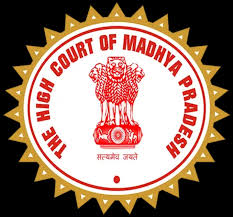Batchelor, J.@mdashThis is a reference made by the learned Sessions Judge of Khandesh in the following circumstances. Five persons were originally sent up for trial before the First Class Magistrate, West Khandesh, on a charge of dacoity u/s 397, Indian Penal Code. At the beginning of the Magisterial inquiry pardon was granted to one of the accused, named Intya, whom we will hereafter refer to as the " approver ;" and the case proceeded against the remaining four accused. The case, however, never went beyond the Magistrate''s Court, for in that Court the approver, examined as a witness, denied all knowledge of the alleged dacoity, and in the absence of material evidence against the four accused, they were discharged by the Magistrate u/s 209 of the Criminal Procedure Code. After that was done, the pardon which had been tendered to the approver was withdrawn. The case against him in regard to the dacoity was proceeded with u/s 339 of the Criminal Procedure Code, and it has ended in his being committed for trial to the Court, of Session.
2. The learned Sessions Judge points out that the result of these proceedings, if they are to terminate where they now stand, is that the four accused persons, who were discharged, will escape ever having been tried upon one material piece of evidence, which was not laid before the Magistrate, but which could be laid before the Court, if the discharged accused are ordered to be retried along with the approver. This piece of evidence is a confession which was made by the approver, and which is said to incriminate both himself and the other accused.
3. The question which we have to answer is whether we have power to direct that the accused persons, who .were discharged, shall be subjected to a retrial jointly with the approver. We are of opinion that that question must be answered in the affirmative. It is clear that, u/s 437 of the Criminal Procedure Code, in the case of any accused person who has been discharged, we have power to direct further inquiry. We have also power to direct, if that inquiry should end in the framing of a charge, that the . accused person be committed for trial to a particular Court. Prima facie, therefore, we have power to order in the case of these accused persons, who were discharged, that there shall be a fresh inquiry, and if that inquiry ends in the framing of a charge, the four accused persons shall be committed to the Court of Session in Khandesh.
4. It is said, however, that u/s 337 of the Criminal Procedure Code, Sub-section 3, we have no power to direct that the trial of the four accused persons should be joint with that of the approver. But we are unable to accept the argument. It is clear that Sub-section 3 of Section 337 contemplates only a case where there has been a commitment made by the Magistrate to the Court of Session or the High Court. It omits to consider the case now before us, that is to say, the case where the Magistrate himself on his own responsibility discharges the accused person. It seems to us, however, manifest that the meaning of Sub-section 3 is merely this: that the approver shall not be set at large until the judicial proceedings pending against the accused are finished. It is, we think, for the purposes of the section, immaterial whether the proceedings are finished by a Magisterial order of discharge before trial or by a Judge''s order of acquittal after trial. In the case of the Magisterial discharge the sub-section would, we think, be satisfied if the approver were detained in custody or on bail until the order of discharge was made.
5. Now in the case before us these requirements of Sub-section 3 have been satisfied. The inquiry has proceeded to its lawful end. During that inquiry the approver was examined as a witness, as required by Sub-section 2 of the section ; the approver was detained in custody or bail until the end of the proceedings ; and the Magisterial inquiry terminated by the Magistrate''s order discharging these accused persons. When that order was made it seems to us that the provisions of Sub-section 3 were spent, and are inapplicable to any proceedings held thereafter.
6. The present position of affairs is that the approver is under an order of commitment in the Court of Session, and that the four accused persons are discharged. Seeing that the provisions of Sub-section 3 were fully carried out at the time when they were applicable, namely, during the pendency of the Magisterial proceedings, we are of opinion that they do not now constitute any bar against our ordering that, if the inquiry against the discharged persons ends in a commitment, they be committed to be tried jointly with the approver. We do not discuss the various cases, notably Queen-Empress v. Bhau ILR (1898) 28 Bom. 493, to which reference was made in argument, because none of these cases appears to us to have any direct bearing upon the state of facts now before us.
7. The next point taken was that this Court has no power to set aside the commitment of the approver, as the Sessions Judge in his reference asks us to do. u/s 215 of the Criminal Procedure Code, a commitment once made can be quashed by this Court upon a point of law only ; and there is some difficulty in holding that the point now under consideration is a point of law. Without deciding that question, however, it appears to us that we can attain the object aimed at by another means. As we have said, it will be enough for us to direct that the District Magistrate, either himself, or by a competent Magistrate whom he may depute, do hold a fresh inquiry in the case of the four accused persons; to direct further that if upon that inquiry the Magistrate is of opinion that a charge should be framed, he shall frame a charge committing these accused persons for trial to the Court of Session ; that in that case the trial of these four accused persons shall be held jointly with the trial of the approver already committed ; and that in order that no practical difficulty be created by these directions the trial of the approver before the Court of Session be delayed until the Magistrate has passed his ; final order in the inquiry into the case of the four accused persons.

